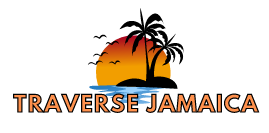Jamaica has long attracted buyers looking for a slice of island life—whether for retirement, investment, vacation, or relocation. But buying property in Jamaica isn’t as simple as booking a flight and signing a deed. There are specific rules, opportunities, and risks that come with the process. This guide breaks down everything you need to know about buying land, homes, and securing mortgages in Jamaica.
1. Can Foreigners Buy Property in Jamaica?
Yes. Jamaica imposes no restrictions on foreigners buying property. Whether you’re looking to buy land, a home, or a condo, non-citizens can legally own real estate with the same rights as Jamaican nationals. However, all foreign buyers must:
-
Register the purchase with the National Land Agency (NLA)
-
Declare the source of funds, especially for transactions over a certain threshold (usually monitored under anti-money laundering laws)
2. Types of Property Available
Residential Homes
From beach villas in Montego Bay to countryside homes in Mandeville or upscale houses in Kingston suburbs like Norbrook, there’s a wide spectrum. Older properties often require renovation, while new developments offer modern amenities and gated communities.
Land
Undeveloped land is common, especially in rural parishes like St. Elizabeth, Clarendon, or St. Ann. If you’re planning to build, always verify:
-
Zoning restrictions
-
Access to utilities (electricity, water, roadways)
-
Proper land titles
Condominiums and Apartments
These are more common in urban or resort-heavy areas. They’re often part of strata corporations, which manage shared spaces. Monthly maintenance fees apply.
3. Freehold vs. Leasehold
Most properties in Jamaica are freehold, meaning you own the land and structure outright. Leasehold properties are rare but do exist, particularly with developments on government-owned land or former plantations. Always check the title carefully.
4. Steps to Buying Property in Jamaica
Here’s how a typical purchase works:
Step 1: Find the Property
Use licensed real estate agents registered with the Real Estate Board of Jamaica. Be wary of unregistered “land men” or informal sellers.
Step 2: Make an Offer
Offers are usually made in writing. Once accepted, a Sale Agreement is drafted by an attorney.
Step 3: Hire a Lawyer
This is not optional. A real estate attorney will:
-
Conduct a title search
-
Draft contracts
-
Register the transaction with the NLA
-
Manage transfer of funds and stamp duty
Step 4: Pay the Deposit
A 10% deposit is typical upon signing the Sale Agreement.
Step 5: Pay Closing Costs
These include:
-
Stamp duty: 4% of purchase price (shared between buyer and seller)
-
Transfer tax: Usually paid by seller (2%)
-
Registration fee: 0.5%
-
Attorney fees: ~2–3% of purchase price (plus GCT)
5. Mortgages in Jamaica
Foreigners and locals alike can apply for a mortgage in Jamaica, though requirements vary.
Major Lenders:
-
National Commercial Bank (NCB)
-
Scotiabank Jamaica
-
JN Bank
-
VMBS (Victoria Mutual)
-
Sagicor
Requirements:
-
Proof of income (pay slips, job letter, or business financials)
-
Valid ID and TRN (Tax Registration Number)
-
Credit check (local and international, depending on residency)
-
Down payment (usually 10%–20%)
Note for Overseas Buyers: Some lenders specialize in non-resident mortgages, especially for Jamaicans living abroad or foreign investors.
Interest rates are typically higher than in North America—expect around 6%–9%, depending on term and creditworthiness.
6. Red Flags to Watch For
-
Unregistered titles: Avoid property that lacks clear ownership.
-
Squatting issues: Make sure the land isn’t occupied illegally. Removing squatters can be legally complex.
-
Flood zones or unstable terrain: Check for environmental risks before buying.
-
No surveyor’s report: Always get a recent survey done to confirm boundaries.
7. Investment and Rental Potential
Jamaica has a growing short-term rental market (especially in tourist hubs) and a solid long-term rental demand in cities like Kingston and Montego Bay. Look for:
-
Proximity to airports, beaches, or universities
-
Gated or secure communities
-
Access to amenities and infrastructure
Be aware that Airbnb regulations are still evolving. Some communities now enforce restrictions or require licensing.
8. Taxes and Ownership Costs
As a property owner, you’ll face the following taxes:
-
Property tax: Annual, based on assessed value (relatively low)
-
Rental income tax: If you rent your property, this income is taxable
-
Capital gains tax: Jamaica does not currently charge this on real estate sales
You’ll also need to budget for:
-
Utilities
-
Maintenance
-
Security (especially in urban areas)
Final Thoughts
Buying property in Jamaica is straightforward if you do your homework. Work with reputable professionals—especially attorneys and agents. Always verify land titles, get a survey, and be aware of the costs beyond the listing price.
Whether you’re building your dream home, buying a vacation retreat, or investing in rental income, Jamaica offers strong opportunities—but like anywhere, due diligence is non-negotiable.









